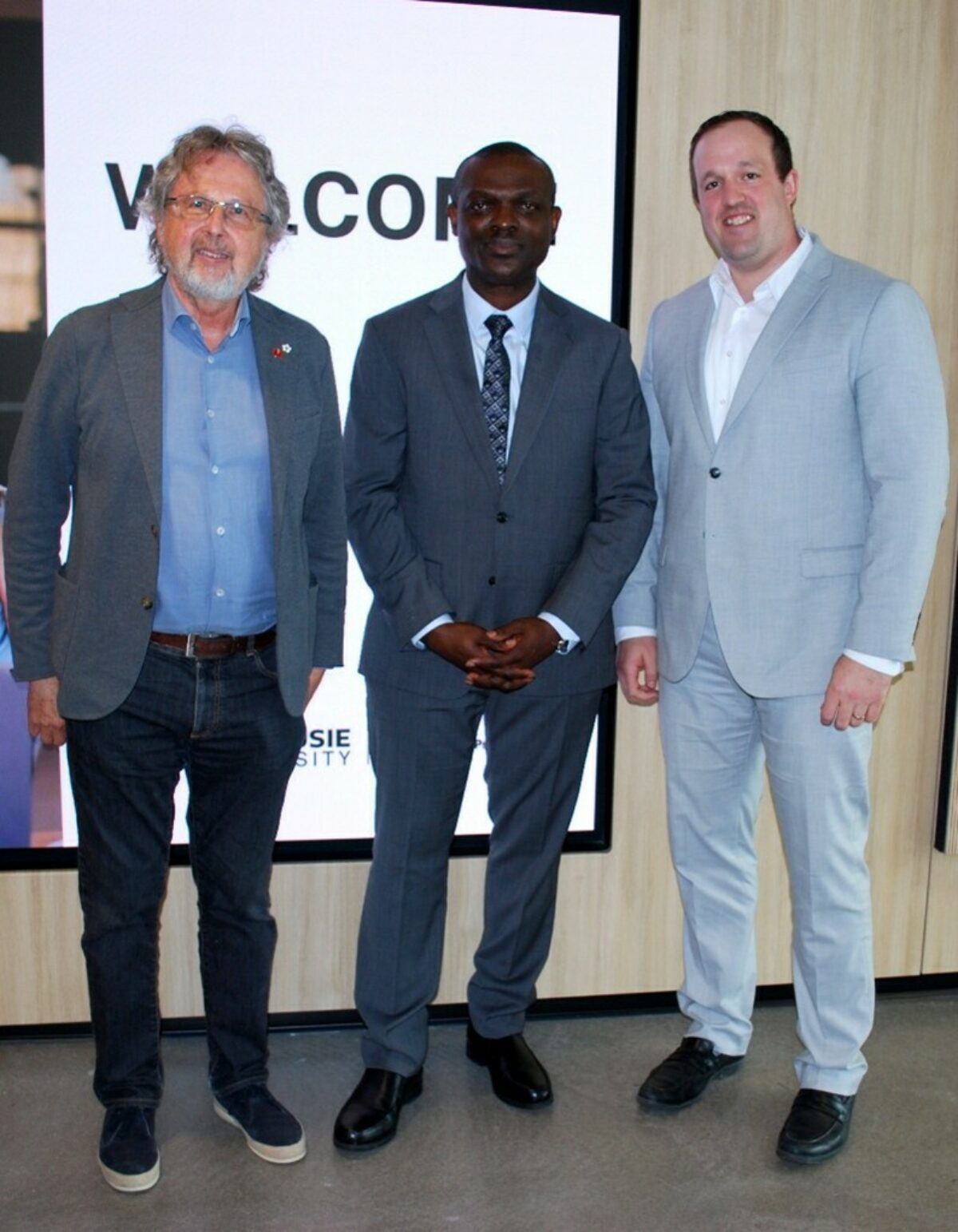New Centre for Global Mental Health unites researchers to prioritize care
June 10, 2025
By Laura Eggertson
Dalhousie’s Faculty of Medicine launched a Centre for Global Mental Health on May 30, bringing together researchers, clinicians, and educators from across the globe to advance research and education and drive equitable access to mental health and wellness care.
“This new Centre is a powerful example of how Dalhousie is living out its mission as a global leader in health research and education,” Dr. David Anderson, Dean of the Faculty of Medicine, said in a virtual address during the launch at the Nova Scotia Health Innovation Hub.
“At Dalhousie we recognize that mental health is health—an essential and integrated part of overall well-being.”
The Centre anchors a network of researchers and plans to build strong international partnerships, including with the World Health Organization and the Pan American Health Organization, while advancing research, innovative services, and educational initiatives.
Members will also advocate for mental health and addiction solutions to help close worldwide treatment gaps, said Dr. Vincent Agyopang, the Centre’s director and the head of the Faculty’s Department of Psychiatry.
“Having a Centre allows us to be able to identify not just problems that are here in Nova Scotia, but problems that are bigger and impact almost the whole world, and to begin to think about how we can contribute to those solutions in mental health,” Dr. Agyopang said in a later interview.
The Centre is already welcoming partners from Ghana, Ireland, South Africa, Greece, Uganda, Zambia, Nigeria, Brazil, Australia, and the United Kingdom, who will deepen their shared commitment to “one of the most pressing issues of our time—global mental health,” Dr. Agyopang said.
“I have no doubt the impact of our work will be felt well beyond the walls of Dalhousie University and our province of Nova Scotia,” he added.
Mental health challenges aren’t unique to Nova Scotia, said the Hon. Brian Comer, Minister of Addictions and Mental Health, who attended the event. But Nova Scotian solutions can have global impact, he said.
“We often punch above our weight,” he said. “Academics and researchers are such a critical part of innovation…. The Global Centre for Mental Health will be invaluable to bring together a lifeline of people to challenge our thinking outside the box.”
Simultaneously with its new Centre, Dalhousie is also launching a Master’s in Global Clinical Psychiatry, said Dr. Graham Gagnon, the Faculty’s Acting Vice-president of Research and Innovation.
The part-time, online program will build psychiatric assessment, treatment, and prescribing skills, as well as cultural competency, research, and leadership in global mental health in practising clinicians such as doctors, nurses, nurse practitioners, and pharmacists.
Meeting equitable needs for mental health is critical to Dalhousie’s institutional priorities, Dr. Gagnon said.

Inequitable access
“Mental health is fundamental to achieving this overall well-being—and yet across the world, and here at home, access to care remains inequitable,” said Dr. Gagnon.
“The Centre for Global Mental Health was created to address this important gap in supporting scalable, community-driven mental healthcare that operates across local, national, and international boundaries.”
From Washington, D.C., Dr. Renato Oliveira e Souza, unit chief for the Department of Mental Health and Substance Use at the Pan American Health Organization, called the new Centre “a bold affirmation of our shared commitment to advocating for health equity.”
The Americas (North, Central, and South American and the Caribbean) have had a 70- per cent increase in suicide mortality over the last 20 years, Dr. Oliveira said. Only one-in-five people with a mental health disorder in this region receive mental health care, he said.
“The burden of mental health disorders and suicide continues to weigh heavily on our societies,” he said. “With the right investment policies and partnerships, we can change the trajectory.”
Dr. Richard Adanu, Rector of the Ghana College of Physicians and Surgeons, praised an existing educational exchange with Dalhousie that he says have improved psychiatric practice in Ghana by allowing residents to spend time at Dalhousie to see how psychiatry is practised in a different context.
That exchange program is an example of the educational opportunities a new Centre can expand, he said. In the future, he hopes Dalhousie residents will be able to come to Ghana.
“We are truly happy to be part of this collaboration, and we look forward to building on it,” Dr. Adanu said.
The Centre is particularly important “at a time when uncertain political forces emanating from our southern country … are threatening to destabilize the geopolitical community,” said the Hon. Dr. Stanley Kutcher, a Senator and the former Head of the Department of Psychiatry.
“It’s refreshing to see an initiative that is based on mutual respect and collaboration,” Senator Kutcher added. “Perhaps a global mental health collaboration is now, more than ever before, a necessity.”
In a paper he distributed to attendees at the Centre’s launch, Dr. Kutcher also called for a robust, independent global health agency and a new initiative to invest in health security, which he hoped would be discussed in the upcoming G7 meeting in Kananaskis, AB.
“We are all ordinary people,” Senator Kutcher said. “We are now being called upon to do extraordinary things. But that’s how extraordinary things get done.”
